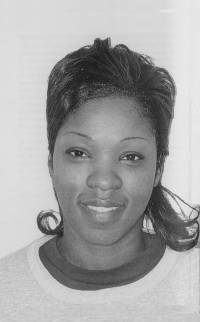For Your Consideration:
"Hair Chronicles"

"The brave writers whose work is represented in this volume have acted in good faith, faced their demons, stayed the course, and revised relentlessly. And in taking on the subject of themselves—making themselves vulnerable to the unseen reader—they have exchanged powerlessness for the power that comes with self-awareness."--Wally Lamb
These powerful stories, testaments, hit us on all levels: we can't escape the power of their story, Let's reflect on anything and everything that comes to us as a result of reading them, INCLUDING the art of writing them.
1. Wally Lamb begins his introduction explaining what goes on in editing, quoting different authors on the art of writing, and lists several techniques the authors in this book may have used. Are you familiar with any of these Writing Techniques? Let's keep an eye out for particularly good examples of the writer's craft.
2. What IS "the hole," did you understand that?
3. What would you say is the theme of Hair Chronicles?
What do you see as the conclusion?
Can you see an author premise in the story?
4. Hair is a recurring image in this story.
What does it seem to symbolize to Tabatha?
5. Were you surprised that she did not want anybody else to have her cut hair?
What other superstitions do you know of that people might use every day?
Do YOU have one you use, innocuous ones such as "Bread and butter?" Do you say that? Do black cats bother you if they cross in front of you?
6. "And anyway, no one deserves to be talked down to and assumed valueless—no matter what their poisons. " (page 101).
It would seem there's a lot of that going on in this prison, is it true in prisons everywhere and if so what is it supposed to cure or produce?
This statement was made in regard to a nurse's response, what did YOU think of the nurse and her attitude?
Aren't nurses supposed to be healers? Is this an example of "tough love?"
7. "Girl, dreadlocks send a message that there is no higher power than Jah Rastafari, " Bonnie told me. "The hair on your head affects people and is a testament to the world about who you are." (page 102).
Do you know what "dreadlocks" are?
Why are they called "dread" locks?
Who is Jah Rastafari and What is a Rastafarian?
8. Did you understand the problem the guards had with Tabitha cutting her own hair?
Did you notice she had to do it with nail clippers?
Exactly WHAT do you envision prisoners having at their disposal?
9. Are there two sets of prisons?
I just read an account of OJ Simpson in jail, it sounds nothing like this?
Are women treated differently than men?
10. Were you surprised that some of her guards were male?
Do you think that's a healthy mix, male guards in a female prison?
11. "But the crowd's roar was overtaken by those other, more familiar voices: You're not good. You can't sing. Yo so black and ugly, ain't no one gonna love you." (Page 109).
Tabatha Rowley is a beautiful woman. If she heard those voices we all do. How do others limit our own accomplishment? Why do they do it? Do YOU hear a voice when you want to do something telling you you can't?
Were you surprised that being a darker shade of black was seen as not desirable?
12. In the Afterword, Wally Lamb quotes Tabatha on the "degradation, dehumanization, and isolation of prison."
13. Capital punishment is another issue. The question is: are there some people who can never be rehabilitated, and should be incarcerated forever? And is fear of this leading us to fail in rehabilitating and helping the others? (Joan K)
© SeniorLearn. All rights reserved.
Contact: webmaster@seniorlearn.org
|
|
